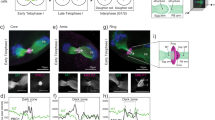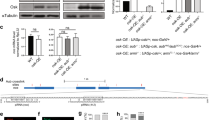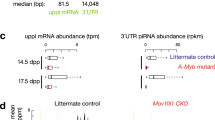Abstract
THE protein synthesis which follows fertilisation of sea urchin eggs depends largely on genetic templates synthesised much earlier during oogenesis1. In the first 2 h after fertilisation the amount of protein being made increases steadily as the preformed mRNA molecules gradually become available for translation2,3. During this period of mRNA activation, the polyadenylic acid content of the embryo increases to more than twice the level present in unfertilised eggs4–6. This fertilisation-stimulated polyadenylation occurs in the cytoplasm on RNA stored in the egg6 and is essentially complete by the time of the second cleavage. Soon after fertilisation the poly (A)-containing RNA moves from the post-ribosomal supernatant to the ribosomal-polysomal fraction of embryos5,6, which suggests that polyadenylation is important in the activation of stored mRNA molecules. This is consistent with other reports that these tracts may play a role in the translation of viral RNAs7,8 and eukaryotic mRNAs9,10. We have therefore investigated whether the formation of poly (A) after fertilisation is necessary for the activation of maternal mRNA. We measured the increase in protein synthesis and active mRNA while poly (A) synthesis was repressed and found a substantial activation even when poly (A) formation could not occur.
This is a preview of subscription content, access via your institution
Access options
Subscribe to this journal
Receive 51 print issues and online access
$199.00 per year
only $3.90 per issue
Buy this article
- Purchase on Springer Link
- Instant access to full article PDF
Prices may be subject to local taxes which are calculated during checkout
Similar content being viewed by others
References
Gross, P. R., in Current Topics in Developmental Biology (edit. by Moscona, A. A., and Monroy, A.), 2, 1 (Academic Press, New York, 1967).
Humphreys, T., Devl. Biol., 20, 435 (1969).
Humphreys, T., Devl. Biol., 26, 201 (1971).
Slater, D. W., Slater, I., and Gillespie, D., Nature, 240, 333 (1972).
Slater, I., Gillespie, D., and Slater, D. W., Proc. natn. Acad. Sci. U.S.A., 70, 406 (1973).
Wilt, F., Proc. natn. Acad. Sci. U.S.A., 70, 2345 (1973).
Johnston, R. E., and Bose, H. R., Proc. natn. Acad. Sci. U.S.A., 69, 1514 (1972).
Armstrong, J. A., Edmonds, M., Nakazato, H., Phillips, B. A., and Vaughan, M. H., Science, 176, 526 (1972).
Darnell, J. E., Wall, R., and Tushinski, R. J., Proc. natn. Acad. Sci. U.S.A., 68, 1321 (1971).
Mendecki, J., Lee, S. Y., and Brawerman, G., Biochemistry, 11, 792 (1972).
Gillespie, D., Marshall, S., and Gallo, R. C., Nature new Biol., 236, 227 (1972).
Darnell, J. E., Philipson, L., Wall, R., and Adesnik, M., Science, 174, 507 (1971).
Lee, S. Y., Mendecki, J., and Brawerman, G., Proc. natn. Acad. Sci. U.S.A., 68, 1331 (1971).
Perry, R. P., Greenberg, J. R., Kelley, D. E., LaTorre, J., and Schochetman, G., in Gene expression and its regulation (edit. by Kenney, F. T., et al.) 149 (Plenum, New York, 1973).
Author information
Authors and Affiliations
Rights and permissions
About this article
Cite this article
MESCHER, A., HUMPHREYS, T. Activation of maternal mRNA in the absence of poly(A) formation in fertilised sea urchin eggs. Nature 249, 138–139 (1974). https://doi.org/10.1038/249138a0
Received:
Revised:
Issue Date:
DOI: https://doi.org/10.1038/249138a0
This article is cited by
Comments
By submitting a comment you agree to abide by our Terms and Community Guidelines. If you find something abusive or that does not comply with our terms or guidelines please flag it as inappropriate.



